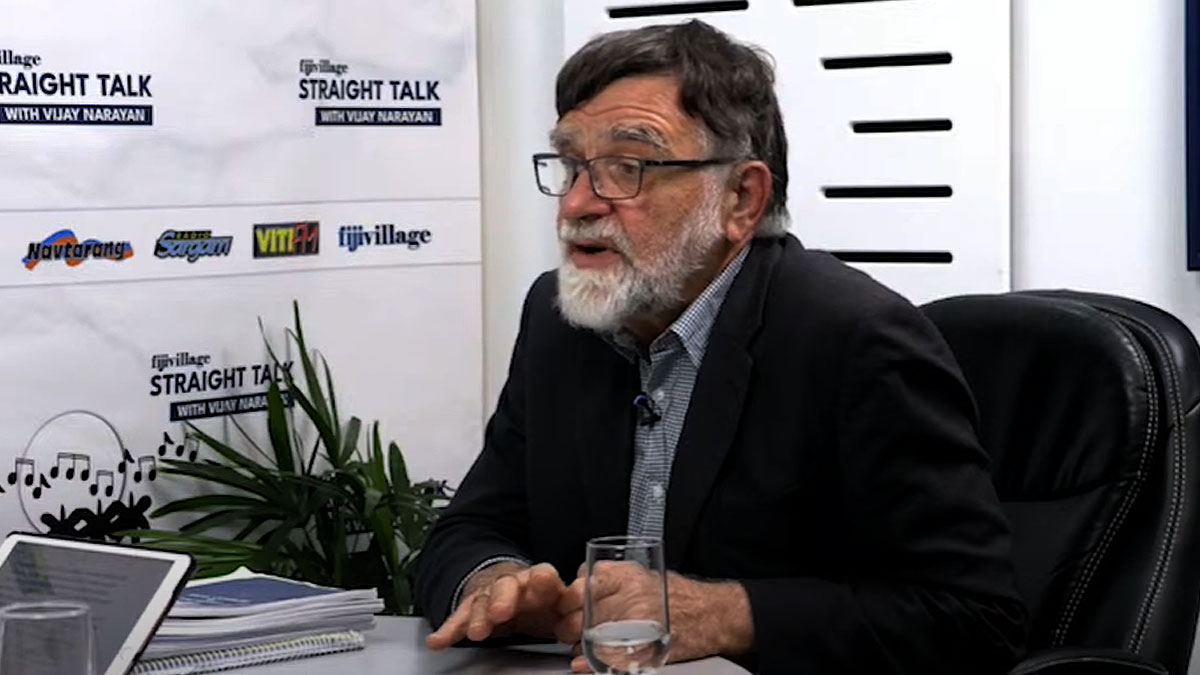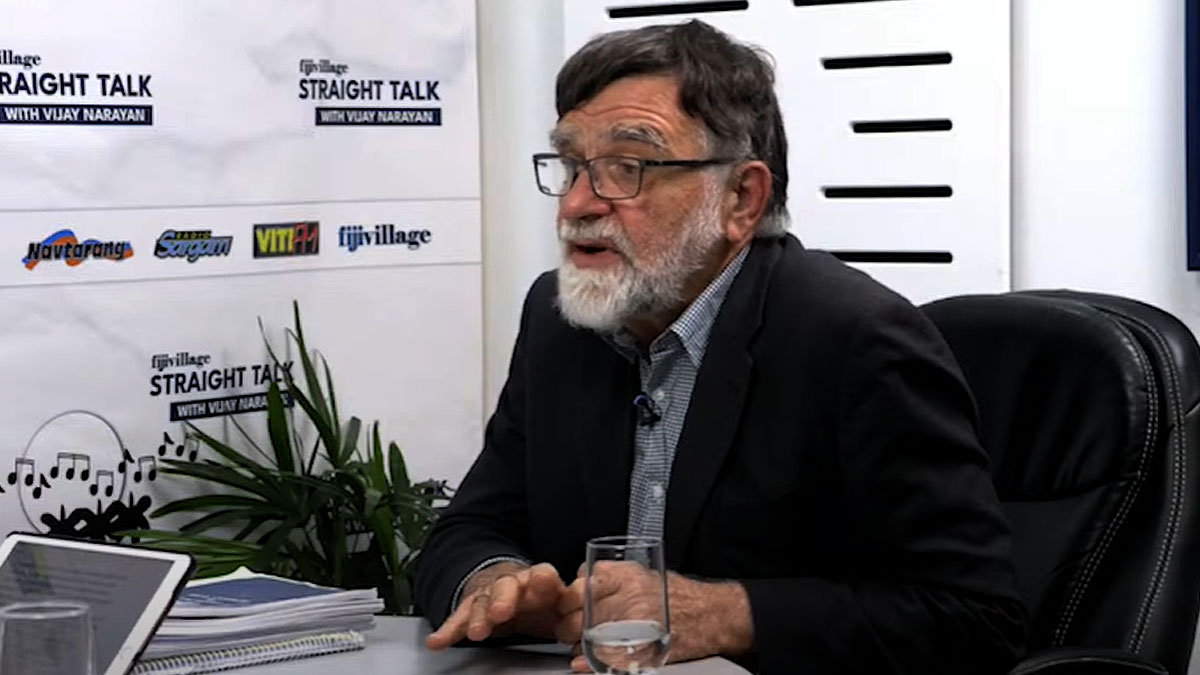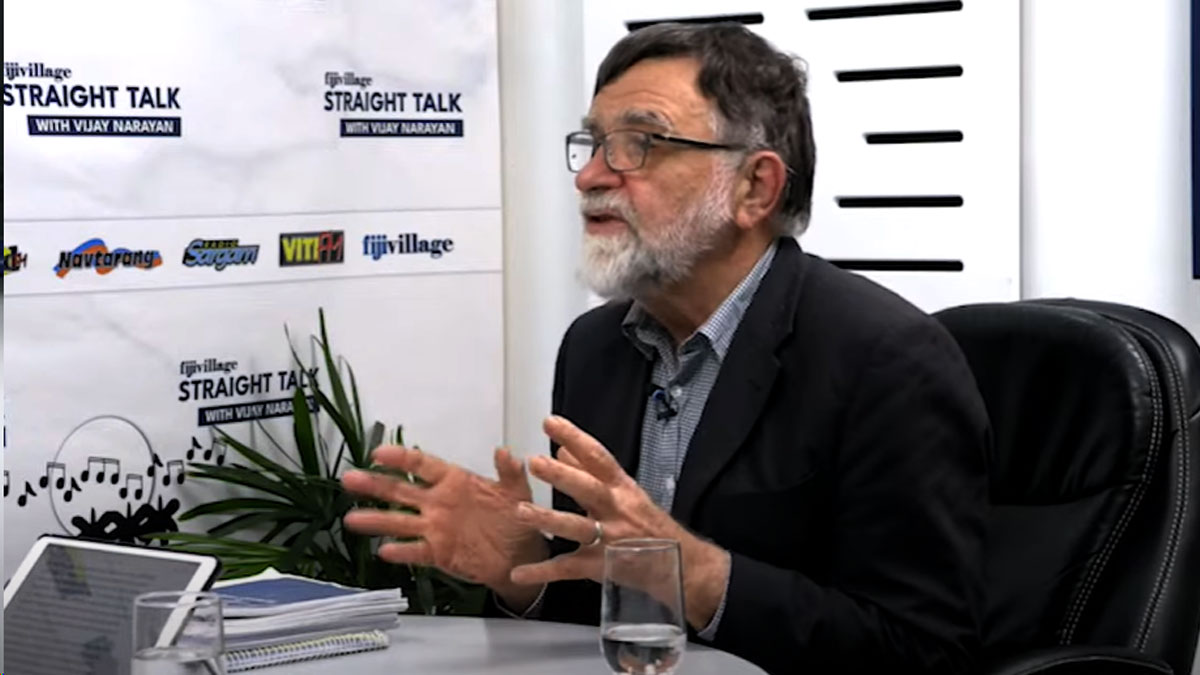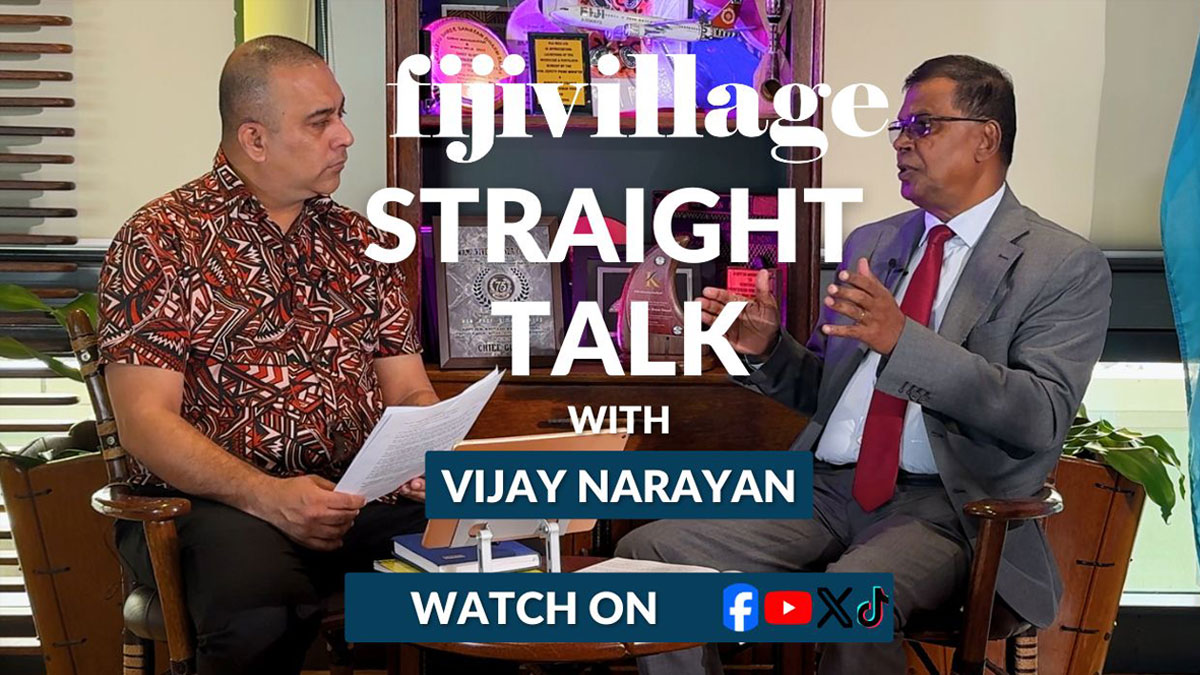
Australian National University's constitutional law expert, Professor Anthony Regan will focus on Fiji's journey and how we have had the 1970, 1990, 1997, the Professor Yash Ghai draft and the 2013 Constitutions.
It will also look at the options of wide and genuine public consultation and whether there is a need to review the 2013 Constitution which was promulgated without a Parliament.

The Fiji Constitution is impossible to change and probably the hardest to change in the world than some communist countries and there are several aspects of the 2013 constitution which are very questionable.
Australian National University's constitutional law expert, Professor Anthony Regan highlighted this during fijivillage Straight Talk With Vijay Narayan.
Professor Regan says the 2013 constitution requires three-quarters of all the seats in parliament or 75 percent to vote ‘yes’ for the change in the Constitution and it would be difficult for the current government to achieve this.
He says the most unusual aspect is that it also requires three-quarters of all registered voters to vote yes for the change.
He says this is impossible when voting in Fiji is not compulsory and the normal turnout is less than three quarters where 72 percent of people voted in 2018 and 68 percent in 2022.
Professor Regan says Fiji in just 54 years has had five constitutions: 1970, 1990, 1997, the Professor Yash Ghai draft and the 2013 Constitutions.
The constitutional law expert says most countries either have one or two while some post-colonial states have 3 constitutions.
He says the difference is remarkable where 1970 was the constitution between the leaders of the ethnic communities of i-Taukei and Indo-Fijians with the colonial government involved, 1990 was imposed by the military and there was no parliament process, 1997 had a wide consultation process participation likewise for 2012 while 2013 like 1990 was imposed by the military regime and both didn’t have the involvement of the legislature.
He further says if you have a legislature, it gives all the interest groups a chance to have their voices heard which is the job of the Constitutional Commission to reflect the real needs of the country but if you impose something without consultation and there is no role of the parliament as the final representative of the people, it doesn’t reflect the need of the people.
Professor Regan adds its been a hard outcome to agree on what should go into the constitution and one needs to protect the change from being made easily and be careful not to be too rigid because if you make it too impossible to change the constitution, then you run rise to political interference and a coup.

Some people are starting to feel uncertain on what parts of the 2013 Fijian Constitution will be changed and they want an inclusive process as they feel sections like all citizens of Fiji to be called Fijian, Fiji to be a Secular State and there should be no discrimination based on race, gender and sexual orientation, are good provisions and brings equality.
When asked on fijivillage Straight Talk with Vijay Narayan on how inclusivity and equality can be protected, Australian National University's constitutional law expert, Professor Anthony Regan says the 2013 Constitution has a good liberal Bill of Rights, that protects people from discrimination, but the problem is that it can be overridden by an ordinary law of Parliament at any time.
Professor Regan says the whole purpose of framing the Constitution is to ensure that it can't be undercut just by the government of the day.
He says the participatory consultative process is to make sure that the concerns are put on the table and the Constitutional Commission, together with the Parliament or an elected Constituent Assembly, will have to make sure that all groups have a chance for their voices to be heard and then the Constitution is framed.
Professor Regan says there has to be a balance between all the different concerns raised.
When asked about Section 131(2) of the 2013 Constitution which states that it shall be the overall responsibility of the Republic of Fiji Military Forces to ensure at all times the security, defence and wellbeing of Fiji and all Fijians, Professor Regan says the subsection does not give the military a role of being the guardian of the Constitution.
He says the aim of the military as in most countries is to look after the needs of the people by protecting them from outside threats.
Professor Regan says the military is generally not tasked with looking after inside problems except in very narrow circumstances such as in states of emergency.
Professor Regan adds there are serious doubts if the military is equipped to decide when the constitution is under threat.
You can watch the full Straight Talk interview on our website, fijivillage.
Stay tuned for the latest news on our radio stations

